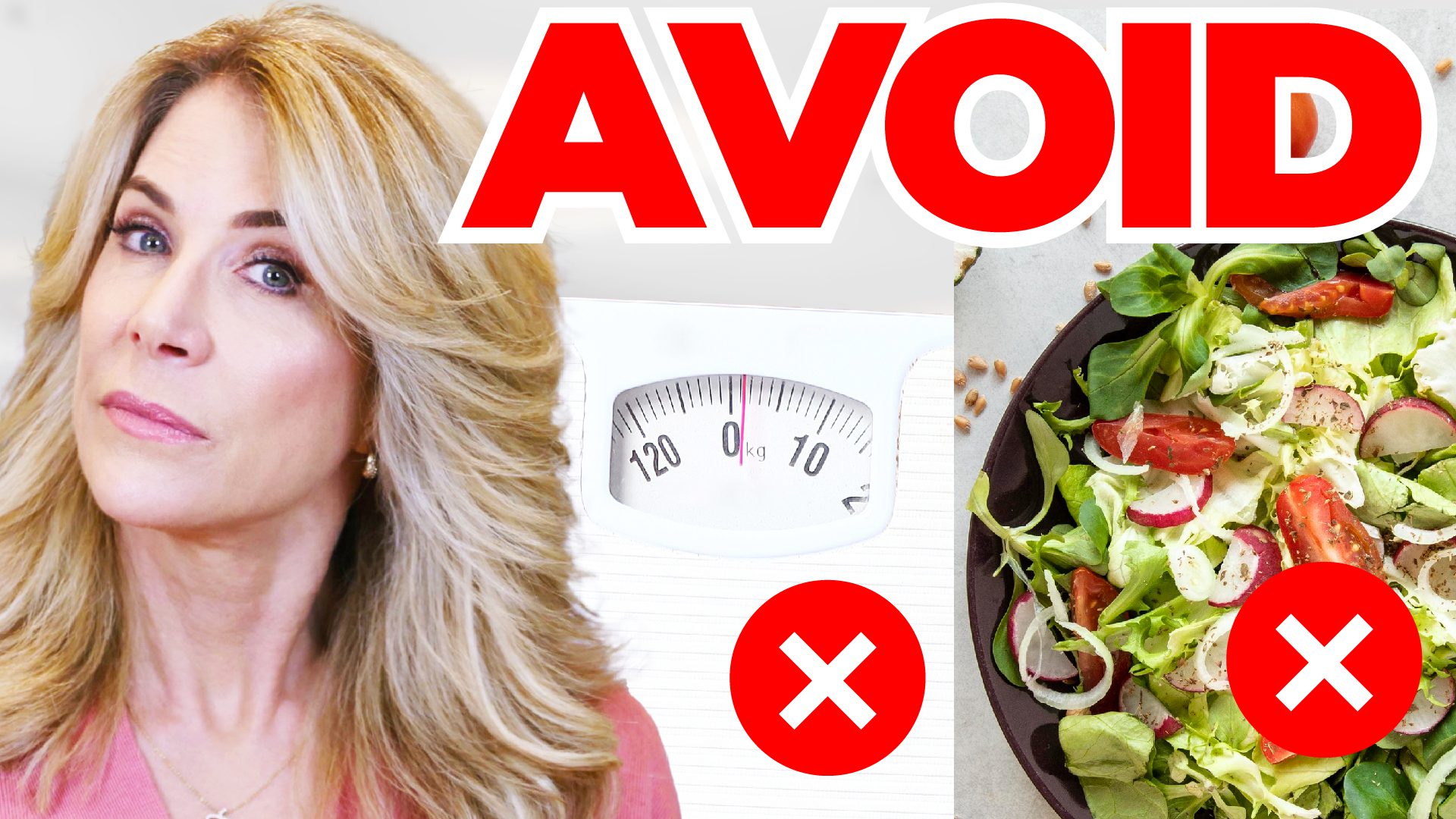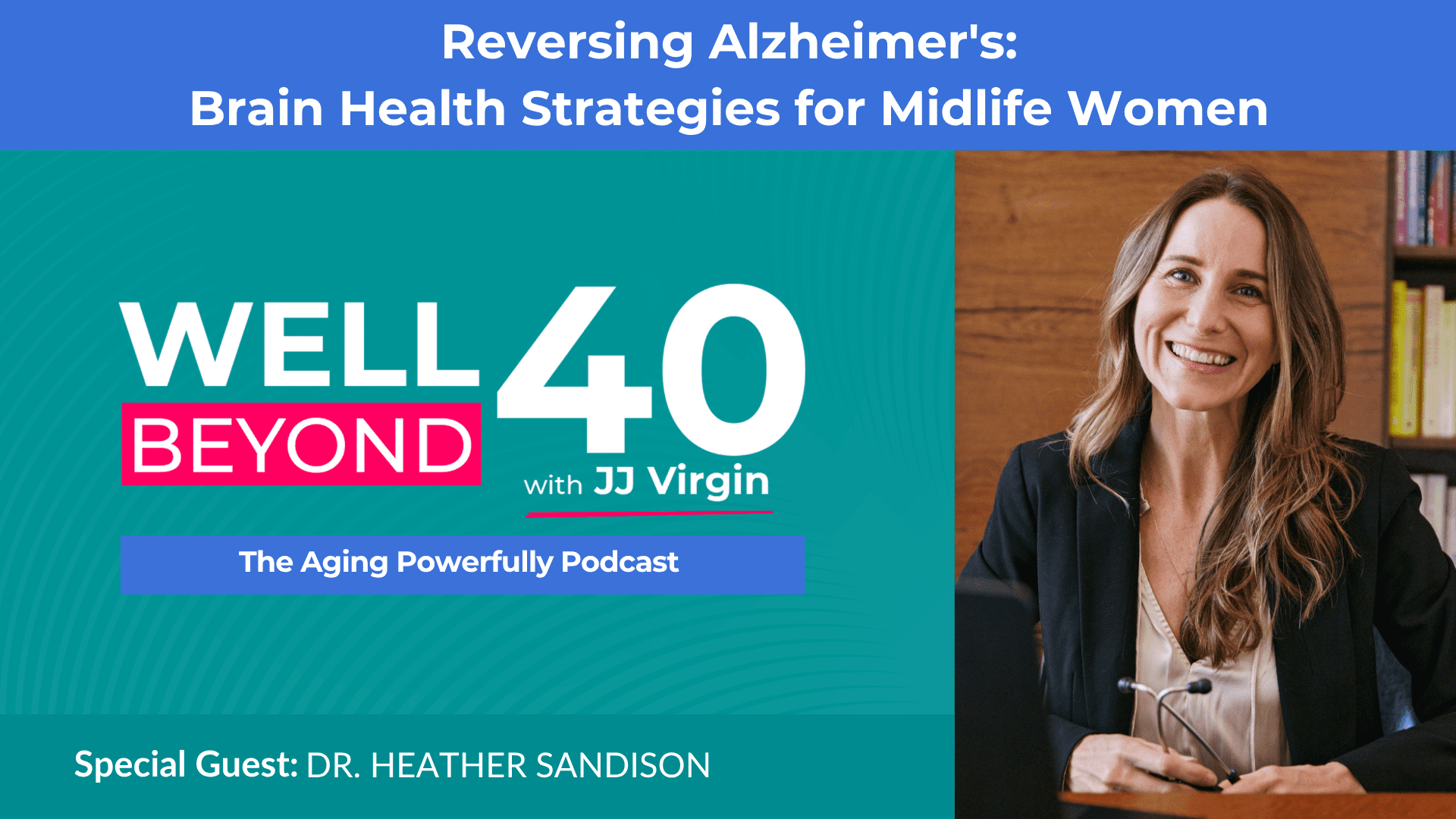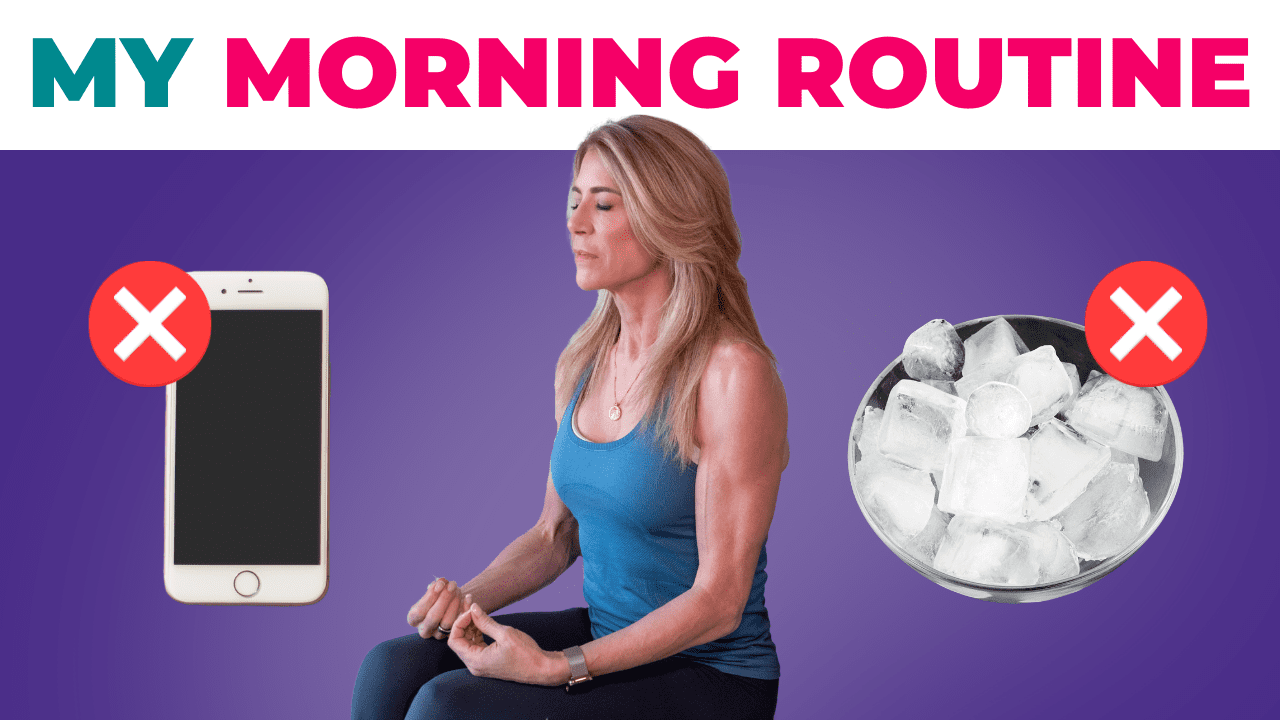Uncover the Common Pitfalls Holding You Back from Fat Loss
Are you putting in the effort but not seeing the results you deserve? In today’s episode, we’re diving into the common pitfalls that might be sabotaging your fat-loss journey. It’s not your fault! Some surprisingly simple, yet often overlooked, mistakes can trip up your progress.
First off, are you getting enough of the right nutrients? Many of us don’t realize that during caloric restriction, adequate amounts of certain macronutrients are crucial for keeping hunger at bay and preserving muscle mass.
Another biggie is activity level. When you cut calories, your body naturally tries to conserve energy, leading to decreased movement. This can significantly impact your fat-loss efforts. I’ll provide practical tips on how to keep your activity levels up throughout the day, even incorporating simple changes like standing more or taking walking meetings.
We’ll also touch on the importance of hydration, resistance training, and accurately tracking your food intake. I’ve got you covered with actionable steps to ensure you stay hydrated, build muscle, and keep your metabolism revved up.
Join me for a deep dive into these five critical mistakes and learn how to avoid them for optimal fat loss. Let’s transform those struggles into successes together.
Timestamps
00:01:22 – The important nutrient that satisfies hunger, maintains muscle, and boosts metabolism.
00:02:16 – A study comparing high-protein and high-carb diets reveals which one leads to significant fat loss and muscle retention.
00:03:40 – Reducing activity levels while on a calorie-restricted diet can have a significant impact on your metabolism.
00:05:00 – Strategies to maintain daily activity levels, including using a fitness tracker and incorporating more movement into daily routines.
00:05:36 – Importance of resistance training to preserve muscle mass during fat loss, enhancing fat burning and overall health.
00:06:26 – Addressing dehydration—its impact on fat loss and the importance of tracking water intake and maintaining hydration.
00:07:42 – Tracking and weighing food accurately to avoid underestimating calorie intake, a common fat loss mistake.
00:09:02 – Conducting a macro audit to determine actual caloric needs and adjusting intake to break through weight loss plateaus.
00:09:39 – JJ’s recommended method of cycling caloric restriction to reduce diet fatigue and preserve muscle mass.
Resources Mentioned in this episode
7-Day Eat Protein First Challenge
Track your protein & macros with Cronometer App
Download my FREE Protein Cheat Sheet
Download my free Resistance Training Cheat Sheet
Study: Impact of calorie restriction on energy metabolism in humans
Study: Why We Underestimate What We Eat
Episode Sponsors:
Try Timeline. Use code JJ10 for 10% off all products
Try Qualia Senolytic backed by a 100 day money back guarantee, and use promo code VIRGINWELLNESS to get 15% off!
Are you racking your brain for why your fat loss efforts just aren’t working? Well, if you’re here, I’m pretty sure it’s not for lack of trying. However, there are some simple things that can totally trip up your fat loss that you’ve likely never thought of. And when you fix them, boom, literally watch the fat melt off.
So here’s the first one. You’re not getting enough protein, especially when you’re doing caloric restriction. And there are three reasons this creates a big problem for you. Number one, of course you know to lose fat you got to be in caloric restriction. Now you can burn fat when you’re not in caloric restriction, but it’s not necessarily going to be a problem.
So, what trips up caloric restriction? Hunger. Right? I mean, if you’re hungry, all bets are off. Well, that’s where protein comes to the rescue, because protein is the most satisfying of all of the three macronutrients. And it does two different things. It satisfies those cravings, but it also is satiating for your hunger.
And when I did my 7 Day Eat Protein First Challenge, these were the two biggest things Biggest things people told me, they just weren’t hungry anymore. Now, to be in caloric restriction means that you have to take in less than you burn, right? Protein is huge for this as well, because protein is the most thermic macronutrient.
So, when you eat protein, it takes about 20 30 percent of the total calories of protein just to be used in the assimilation and digestion. So, when you swap out some carbs or fat for protein, it’s going to actually initially I’m going to share a study where there were 24 overweight women in their late 40s to mid 50s and they were put into two groups.
One group ate more carbs, one group ate more protein. The protein group consumed 125 grams of protein a day, and the carb group consumed about 68 grams of protein per day. And fat and calories were the same in each group. So isocaloric, 10 weeks. Both groups lost weight, but there were Two big differences.
In the carb group, there was more ups and downs in blood sugar after eating. In the protein group, they actually lost more weight and they lost more fat than muscle. They were able to hold on to more muscle. And that’s a huge important thing, not only for helping your body composition, but helping after you lose weight to better maintain it.
And that’s the third problem that eating protein fixes. It helps you prevent muscle loss. And again, if you’re trying to avoid metabolic adaptation, that thing you heard about with the biggest loser study where people had lower metabolism after weight loss, protein can help fix that. The big fix here is eat protein first.
And for your best choices, you can go to my protein cheat sheet, and that’s at jjvirgin. com forward slash protein. Protein cheat sheet. Next mistake, reducing your activity level. Now, here’s the thing. 📍 📍 When you start to reduce calories, our body starts to conserve energy and move less.
There was a study called the CALERIE study, the comprehensive assessment of the Longterm effects of reducing intake of energy, and what this showed is when you eat less, your body tries to save energy by making you less active. Your body actually adjusts to how much energy it uses. So it’s doing more than what you would expect from just losing weight.
What they found when they did this study is when people slept, their bodies used 5 to 8 percent less energy when they were in caloric restriction. And then during regular activities, they used even less energy. So if they were a fidgeter, they fidgeted less. They tend to sit more, etc. Suggests that when you change, you’ve got to change
how you act. Otherwise, your body is going to conserve energy. So as you do caloric restriction, if you don’t adjust, your body’s going to downshift. And the more you cut calories, the more your body will do this.
This is really important because 15 to 30 percent of your Overall metabolic rate, how many calories you use all throughout the day is actually coming from activity and exercise.
And we tend to consider exercise, but we don’t tend to consider activity. So here’s what I want you to do. I want you to make sure that you’re tracking your activity all throughout the day. You can do this with an Oura Ring, an Apple Watch, a Fitbit. And what you want to do is track those steps and start incorporating in intentional activity.
Literally stand instead of sit. Walk instead of stand. I got myself a walking pad to put under my desk. I have a stand up desk so I can stand up and a walking pad under it so I can walk during meetings. And I’ve just made a conscious effort as well to look at, can I incorporate a coffee date into a walking date?
Can I start doing a call and walk pace around the house? It all adds up. Next one, this is a biggie, is not doing resistance training. We want to make sure that as you’re losing fat, you are holding on to, or even better, building muscle. Muscle. Now, protein, of course, is going to help, but it’s protein in combination with resistance training.
The reality is the average diet, you’re going to lose anywhere from 20 to 30 percent muscle loss. And we know we lose muscle as we age. So if you’re compounding this, with caloric restriction, it can be really, really hard to get that back. And this is a problem because muscle is critical for a couple different things.
We burn fat in our muscles. This is the first place we start to restore insulin sensitivity. Again, that’s going to help us burn fat more. And muscle is your metabolic spanx. Remember, it holds everything in tighter and it requires more energy to be on your body to do that muscle protein turnover. So we want to make sure that we’re holding on to our building muscle as much as possible.
So again, Resistance training for the win, two to three times a week. Here’s another one you probably never considered. And that is dehydration. Now we know that first week you go on caloric restriction, it seems like you’re like, wow, I just lost a lot of weight. But of course, a lot of that is some fluid adaptation, especially if you dropped a lot of carbohydrates.
So you’re going to lose some water during initial weight loss. What we want to do after that is make sure we’re tracking your water intake by using a bioimpedance scale and using your Cronometer app. Track your fluid intake but also track your total body water on a bioimpedance scale and make sure you’re getting in at least half an ounce per pound of body weight.
So if you weigh 150 pounds, that’s 75 ounces, and then add half an ounce to an ounce for every minute of exercise. And I also like to add in electrolytes here as well. Now here’s the thing, if you were even mildly dehydrated, I got the I got this from Dr. Rick Johnson. It’s on my Well Beyond 40 podcast interview with him.
Mild dehydration can actually make you hold on to fat. Why? Because our body actually wants to make sure that we have enough water to survive, kind of like a camel. And how do we do that? We hold on to fat because when we burn fat, we liberate water. So you’ve got to make sure that you’ve got good hydration in order for your body to be able to burn fat well.
So, again Track your water intake and monitor with your bio impedance scale so that you can see your total body water. The next one is not tracking or weighing your food. Now you might be tracking, but if you’re not weighing it, that’s a problem because we tend to Underestimate what we’re eating. In fact, there was a study at Cornell University when they found that normal weight people underestimate what they eat by about 20%.
And overweight people underestimate what they eat by about 40%. There’s some other sources that say it can even be closer to 50%, and I want you just to think about, imagine if you underestimate. I love Cronometer. It’s not enough just to say, okay, I had a chicken breast. I think it was like four ounces.
No, no. We need to actually weigh these things in to see what you’re actually eating. So food scales are like, 10 bucks on Amazon. Track everything that you’re doing. Don’t have to do this forever, but at least do it for a month to really get a clue, a clear picture of what you’re doing. Now, as you lose fat, here’s what’s going to happen.
You’re going to decrease your basal metabolic rate. That’s why I want to make sure you’re putting on building muscle, because that’s going to help even more to minimize that metabolic adaptation. But if you find you hit a plateau, what I want you to do is do a macro audit for a week. Use your food app for a week and see what amount of calories you are losing.
Actually need to do in order for you to maintain your weight. Once you see what you actually need, if you want to continue to drop body fat, you’ll know your actual calories that you need to use for caloric restriction. And here’s how I like to use caloric restriction. I like to do 25 percent reduction of your total calories that you need.
So if you know that you need 2000 calories a day to stay at your current weight, then you would go and do that. to 1500 calories a day for five days, and then go back to your maintenance calories for two. This type of cycling helps with diet fatigue. This is one that I got from Dr. Bill Campbell and may help offset some of the muscle mass loss as well.
All right, let’s take your fat loss journey to the next level. Once you have these habits dialed, you are also going to want to make sure that you are eating the best foods for fat loss. Now I go over nine foods you should have in your diet every day for great results at any age. Check it out.
Hide Transcript

 Subscribe to our show
Subscribe to our show 




